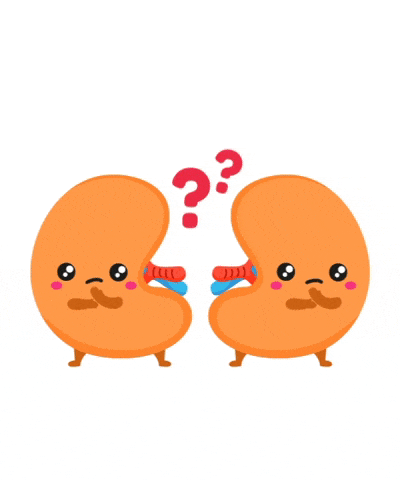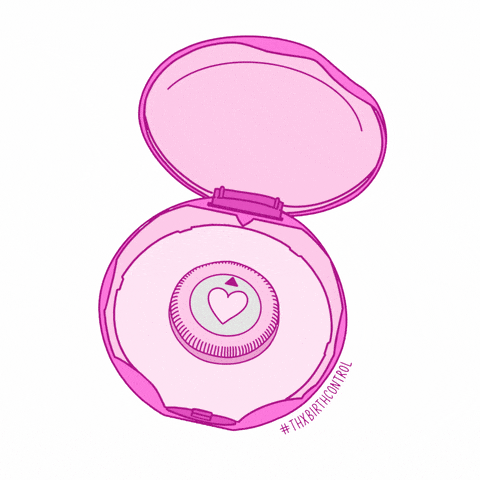FeverPhone App, Birth Control May Increase Risk of Depression, Napping Linked to Healthier Brain, Declining Kidney Function in Younger Adults, Do I Need 8 Glasses of Water Per Day?
FeverPhone app 🌡️

Gist: A new app called FeverPhone repurposes smartphone battery temperature sensors and touchscreens to estimate users' core body temperature, potentially serving as a handy alternative to traditional thermometers.
Nitty-Gritty: Researchers from the University of Washington tested the app on 37 emergency department patients and found its accuracy comparable to consumer thermometers. The team utilized the phone's in-built thermistors (i.e. phone's internal thermometer), which typically monitor battery temperature, to track heat transfer between the user and the device, with the touchscreen sensing skin-to-phone contact. The team trained a machine learning model using various test cases to accurately estimate body temperature. During the clinical trial, FeverPhone estimated patients' core body temperatures with an average error of about 0.41°F, falling within the clinically acceptable range.
Big Picture: While the technology shows promise, the team recognizes the need for more training data for broader use and the potential to expand it to other smartphones and devices like smartwatches.
Original source: here.
A new study revealed that as many as 18% of younger adults may have decreased kidney function.

Gist: The study, which analyzed the health records of eight million Ontarians aged 18 to 65 between 2008 and 2021, revealed that 18% of those aged 18 to 39 displayed slightly subpar kidney function that did not meet the standard threshold for chronic kidney disease, however, there is still risk associated with this.
Nitty-Gritty: A recent Canadian study, published in the British Medical Journal, has indicated that even a minor reduction in kidney function can lead to adverse health outcomes for young adults. Despite this, the "grey zone" decrease in function is linked to detrimental clinical events such as heart disease, accelerated risk of kidney failure, and even death. It is particularly worrying that many younger Canadians are experiencing early declines in kidney function that are going undetected. The study suggests that individuals with a 20-30% loss in kidney function are more susceptible to these risks.
Big Picture: While the risk remains relatively low (less than two per 1000), kidney specialist Dr. Manish Sood calls for more vigilant monitoring and, when necessary, specialist intervention. You can also read more about how to maintain your kidney health here.
Original source: here.
New study links depression and combined contraceptive pill 💊

Gist: One of the most comprehensive studies to date has linked the use of combined contraceptive pills (i.e. birth control) to an increased risk of depression, particularly among teenagers.
Nitty-Gritty: The research, which involved over a quarter of a million women, discovered that women who started using contraceptive pills during their teenage years had a 130% higher incidence of depressive symptoms, while the increase was 92% for adult users. This significant impact among teenagers is thought to be due to the hormonal changes caused by puberty, making them more susceptible to hormonal shifts and life experiences. Despite most women tolerating external hormones well and the benefits of contraceptive pills, including preventing unplanned pregnancies and certain cancers, there is a need for greater awareness among healthcare professionals of potential links between depression and contraceptive pill use.
Big Picture: The study emphasizes the importance of informing women of the potential risk of depression as a side effect. We also think it's important to have an open discussion with your health care provider about your history, whether personal or family, in order to make an informed decision that suits your health care needs.
Future research plans to compare different contraceptive methods to provide women with more information for decision-making.
Original source: here.
Catch some Z's, it's good for your brain! 🧠

Gist: A new study by researchers from University College London, published in Sleep Health, suggests a genetic predisposition to daytime napping may result in larger, healthier brains.
Nitty-Gritty: The researchers studied the DNA of 378,932 participants aged between 40 and 69 from the UK Biobank and determined their tendency towards habitual napping. They used a technique called Mendelian randomization, where they evaluated snippets of DNA to determine people’s likelihood of habitual napping. Additionally, a combination of cognitive tests and MRI scans were used to assess structural brain changes linked to napping. Findings indicated that those genetically inclined to nap possessed a larger total brain volume, a sign of brain health. This could counter the effects of aging and brain atrophy (i.e., shrinking), which often leads to cognitive impairment and an increase in reaction times and memory loss.
Big Picture: The researchers describe the association between habitual napping and larger total brain volume as modest but causal. Some of you may also remember snippets from our previous TFP newsletters featuring Dr Matthew Walker and his discussion about the benefits of napping, including making up for a poor night's sleep among others!
Original source: here.
Beyond Text: You know the old rule that you need to drink eight glasses of water every day? It's simply a myth, says Dr. Jen Gunter. Dr Gunter is a Canadian OB/GYN and pain medicine physician who advocates for evidence-based medicine.
In this episode, Dr Gunter explains the amazing way your kidneys keep your system in balance -- and how you can really tell if you're dehydrated. Run time: 4mins 21 secs.
Interested in previous newsletters or other articles we’ve published? Check them out here at: thefullpanel.com
Got a question for us? Suggestions for content you’d like to see? Feedback? E-mail us at: hello@mail.thefullpanel.com
